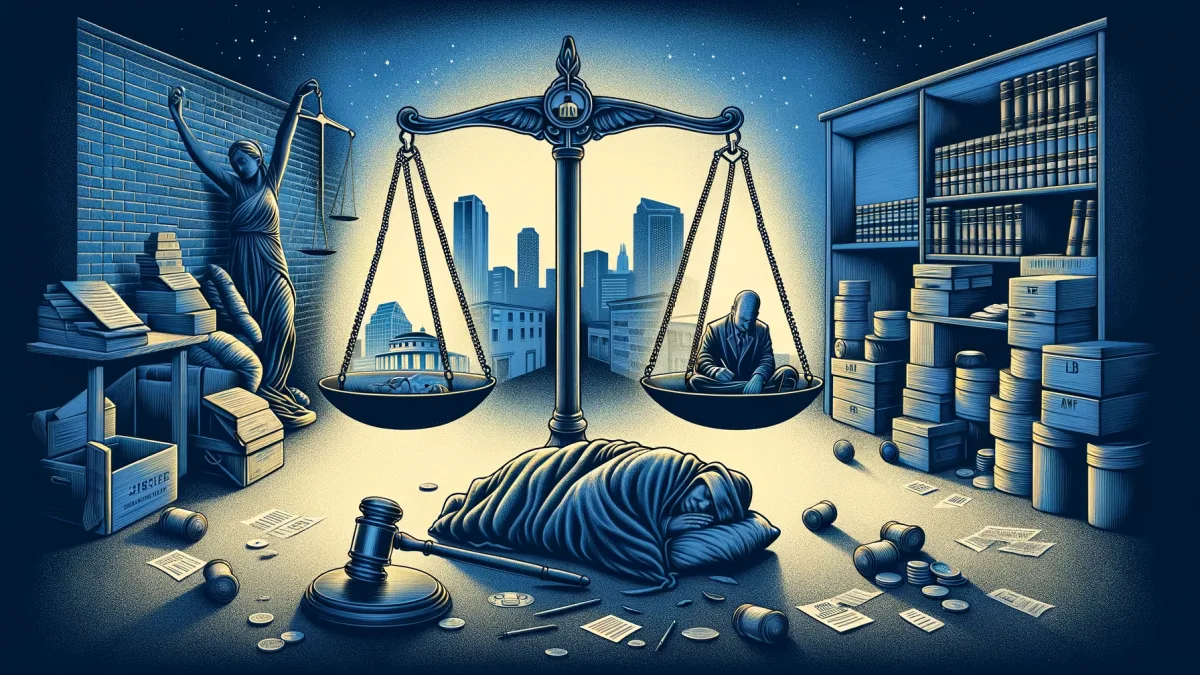In the land of the free, the question of whether it’s illegal to be homeless strikes at the heart of ongoing debates surrounding social policy, human rights, and urban governance. As you wander through the bustling streets of American cities, the visibility of homelessness brings a critical question into sharp relief: Is it illegal to be homeless in the United States? Let’s unpack this complex issue together, with an eye toward the latest legal developments and a touch of legal expertise.
The Legal Landscape of Homelessness
First things first: There is no federal law in the United States that criminalizes homelessness outright. However, the situation gets murkier when we dive into state and local ordinances that regulate public spaces and behaviors often associated with homelessness. These laws can indirectly criminalize the activities necessary for survival on the streets.
Anti-Homelessness Ordinances
Many cities have enacted ordinances that, while not illegalizing homelessness per se, target actions common among the homeless population. These include:
- Loitering: Laws against loitering or vagrancy can penalize individuals for lingering in public places without a clear purpose.
- Sleeping in Public: Ordinances may prohibit sleeping or camping in public parks, sidewalks, or other public areas, especially overnight.
- Panhandling: Soliciting money or food, often a necessity for those without shelter, can be restricted under local laws.
The Debate Over Public Space and Human Rights
The enforcement of these ordinances has sparked significant debate, with critics arguing that they criminalize poverty and infringe on the rights of the most vulnerable. Supporters, on the other hand, often frame such measures as necessary for maintaining public order and community standards.
Legal Challenges and Advocacy
The criminalization of homelessness has faced challenges from advocates and legal organizations, arguing that such laws violate basic human rights and constitutional protections. Key points of contention include:
- Cruel and Unusual Punishment: The Eighth Amendment’s prohibition against cruel and unusual punishment has been cited in cases arguing that penalizing individuals for sleeping in public when no shelter is available is unconstitutional.
- Right to Privacy: Although more difficult to argue in public spaces, some contend that certain ordinances infringe on personal liberties and privacy rights.
Landmark Decisions
One pivotal case, Martin v. City of Boise, saw the Ninth Circuit Court of Appeals ruling that cities cannot prosecute people for sleeping on the streets if no alternative shelter is available. This decision underscored the principle that enforcement should not override basic human needs and rights.
The Path Forward: Solutions and Considerations
Addressing the legal status of homelessness requires balancing individual rights with community needs. Solutions often proposed include:
- Increasing Affordable Housing: Expanding access to affordable housing is seen as a fundamental step in preventing homelessness.
- Support Services: Providing comprehensive support services, including healthcare, job training, and substance abuse programs, can help address the root causes of homelessness.
- Legal Reforms: Advocates call for revising or repealing laws that penalize homelessness, advocating for approaches that respect human dignity and rights.
Conclusion: A Call for Compassion and Legal Insight
The question of whether it’s illegal to be homeless in the United States opens up broader discussions about society’s obligations to its most vulnerable members. While the legal landscape is fraught with challenges, it also offers opportunities for advocacy, reform, and, ultimately, solutions grounded in compassion and justice.
As we navigate these legal and ethical streets, it’s crucial to remember that homelessness is not a crime but a critical social issue that demands thoughtful, informed responses. By fostering dialogue, challenging unjust laws, and advocating for systemic change, we can work towards a future where no one is penalized simply for lacking a place to call home.









Leave a Reply